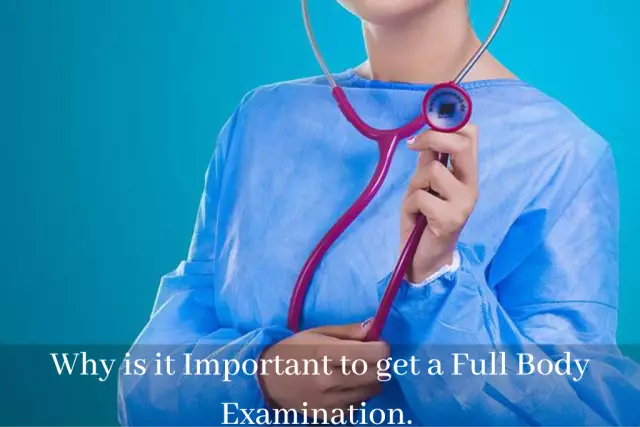- Author Curtis Blomfield [email protected].
- Public 2023-12-16 20:44.
- Last modified 2025-01-23 17:01.
People who do not have a medical education can hardly imagine what the hypoglossal nerve is. But in some cases, this information can be very important. There are a number of problems that impair a person's quality of life associated with the tongue and hypoglossal nerve. Let's take a closer look at them.

Simply complex
The hypoglossal nerve innervates, that is, it connects the nerve endings of the tongue with the central nervous system. It provides motor (efferent) innervation, allowing the central nervous system to control the activity of the tongue and the circular muscle of the mouth. The nerve is paired, it is the twelfth pair of cranial nerves. It emerges from the anterolateral sulcus, and its nucleus is located along the medulla oblongata.
The jaw-hyoid nerve sends impulses and provides activity to the upper, lower, longitudinal, transverse and vertical muscles of the tongue. It is responsible for the movement of the genioglossus, hyoidoglossus and styloid muscles.
How to understand a doctor. Meaning of terms
Because information about the sublingualnerve is a little difficult to perceive, patients do not always understand what the specialist is talking about. To understand the diagnosis, you need to know some terms:
- Hemiglossoplegia. This term refers to paralysis of half of the tongue.
- Glossoplegia is a state of complete paralysis of the tongue.
- "Dysarthria". Diagnosis, indicating a violation of articulation of speech. Slurring is accompanied by a sensation of a foreign substance in the mouth.
- "Anartria" is a diagnosis specifying that articulate speech is impossible.

These terms are found quite often in case histories related to the hypoglossal nerve. It is better to remember their meaning.
What is the patient complaining about
When visiting a doctor, patients mostly complain of weakness of the tongue. They have difficulty speaking and sometimes even swallowing. Gradually, the problem grows, and the tongue moves worse and worse. It may seem to the patient that he has a "mouth full of porridge", which makes it difficult to make out his speech. In difficult cases, speech disappears completely.
Medical examination
If a specialist suspects that the hypoglossal nerve is affected, he will determine the symptoms by examining the tongue in the oral cavity. First of all, the doctor asks to stick out the tongue. Don't be surprised, this simple action can point to the underlying problem. The doctor can visually determine the degree of the disease. If the hypoglossal nerve does not function well, then the tongue deviates to the side. This is due to hypotension of the muscles on the one hand. The entire surface of the organ looks wrinkled and becomes uneven. But hereit must be borne in mind that many patients purposefully reject the tongue towards the doctor so that he can better examine it. If there is any doubt as to whether the tongue is arbitrarily or involuntarily rejected, then the patient is offered to touch the upper lip with the tip. If there is no pathology, then the tip will be located in the middle, if the nerve is affected, it will move to the side.

In addition to deviation, the doctor should pay attention to atrophy and fibrillar twitching.
Bilateral lesion of the hypoglossal nerve occurs in about 20% of cases. This disease is more difficult to treat and can lead to complete loss of speech.
Diagnostic options. Neuropathy
Basically, neuropathy is a nerve lesion that is non-inflammatory. In the case of the hypoglossal nerve, this diagnosis is divided into central and peripheral neuropathy.
Central affects the corticonuclear pathways of the nerve. The problem affects the cortex and nucleus of the twelfth cranial nerve. This type of neuropathy is usually combined with problems of the facial nerve. When protruding, the tongue deviates to the opposite side of the lesion, since the nucleus of the hypoglossal nerve has connections with the opposite hemisphere. Atrophy and fibrillar twitching are not observed.

The process may have several stages. If the hypoglossal nerve is affected only in the region of the internal section, then only the functions of the tongue muscles are affected.
If the lesion starts below the exit from the hypoglossal nerve canal, then the problemaffects the nerve fibers connected to the cervical roots. This leads to dysfunction of the muscles that hold the larynx. When swallowing, there will be a shift to the he althy side.
Peripheral neuropathy
Peripheral hypoglossal nerve palsy is diagnosed if the process affects the intracerebral root or nucleus. Doctors may use the wording "paresis of the muscles of the tongue." Both of these names are equivalent. Most often, this disease is unilateral, but if there is a pathology of the nuclei, then muscle damage can occur on both sides. On examination, atrophy of the problematic part of the tongue is noticeable. The fabric loses its elasticity, becomes flabby and “crumpled”. If the case is severe, then the motor activity of the organ is significantly limited.
If the hypoglossal nerve is affected on one side, then in the oral cavity the tongue shifts to the he althy side. When the patient sticks out his tongue, it moves to the affected side. The doctor may observe fibrillar trembling (twitching). Sometimes this process is confused with the usual twitching of the muscles, which can happen when the tongue is tense during protrusion. If the specialist noticed a similar phenomenon, then he should ask the patient to relax the muscles of the tongue. The usual muscle tremor will pass, but the fibrillar one will remain.
With deep nuclear nerve damage, an additional symptom may be atrophy of the orbicular muscle of the mouth. The patient is unable to perform the simplest actions - fold his lips into a tight tube, whistle, blow.

For bilateral flaccid paresisthe paralyzed organ lies on the bottom of the oral cavity. Speech and ability to swallow are significantly impaired.
The causes of damage to the nucleus of the hypoglossal nerve are quite serious. Of the most common are:
- bulbar palsy;
- motor neuron disease, that is, damage to motor neurons;
- syringobulbia;
- polio;
- vascular problems.
Explain in more detail the manifestations of several diseases.
Bulbar and pseudobulbar syndrome
The cause of the first disease is a degenerative degeneration of tissues in the cerebral cortex, a violation of blood flow to the medulla oblongata, the appearance of stem tumors, polyencephalomyelitis, structural pathologies, trauma to the base of the skull.
Signs: immobility of the epiglottis, larynx and soft palate, change in voice, loss of intelligible speech, difficulty swallowing (liquid food can flow into the nose), impaired breathing. The vocal cords are in a "cadaverous position", the tongue fibrillarly twitches. If the facial and trigeminal nerves are additionally affected, the masticatory muscles atrophy and the lower jaw droops.
Pseudobulbar syndrome is very similar to bulbar syndrome, but it is a lesion of the corticonuclear connections on both sides. More cranial nerves are affected, including the hypoglossal nerve, and cerebral ischemia occurs. Salivation, reflex movements of the eyeballs, bouts of crying or laughter, dementia and decreased intelligence are added to the symptoms.
Methods of diagnosis and treatment
The doctor is taking an anamnesis,performs a visual examination, to confirm the diagnosis appoints a CT scan or MRI of the brain. This allows you to find out the cause of compression of the hypoglossal nerve.

Any treatment is prescribed after confirmation of the diagnosis. The main goal is a positive impact on the underlying disease. Self-medication is unacceptable!






